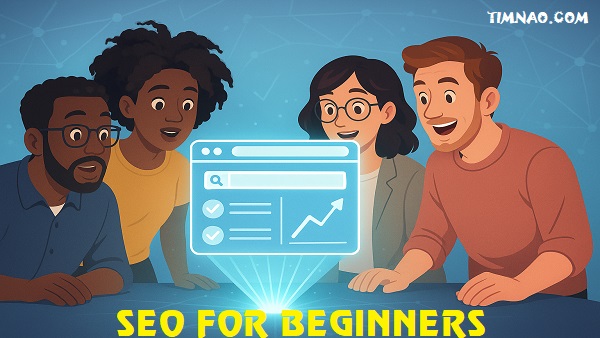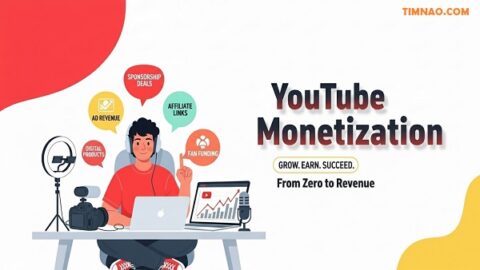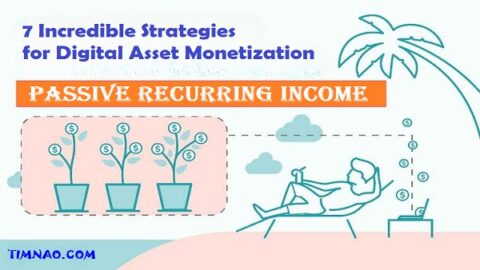🚀 Unlock Your Website’s Potential: A Beginner’s Ultimate Guide to SEO for Beginners!
Welcome to the exciting world of Search Engine Optimization (SEO)! If you’ve built a website or are thinking about starting one, you’ve probably heard this acronym buzzing around. But what exactly is SEO, and why is it so crucial for anyone with an online presence? This comprehensive guide on SEO for beginners is designed to demystify the jargon, help you learn SEO basics, and understand the core website ranking factors that can catapult your website from obscurity to the top of search engine results. Get ready to embark on a journey that will empower you to attract more visitors, grow your audience, and achieve your online goals!
At its heart, SEO for beginners is about making your website more attractive to search engines like Google, Bing, and DuckDuckGo. When someone searches for information related to your content, products, or services, you want your website to appear as high up as possible on the Search Engine Results Pages (SERPs). Why? Because the vast majority of users rarely venture beyond the first page of results. Effective SEO translates into increased visibility, more organic (non-paid) traffic, enhanced credibility, and ultimately, a better return on your investment.
This guide will break down the essentials of SEO into digestible, actionable steps. We’ll cover everything from understanding how search engines work to implementing practical strategies that you can start using today.
📜 Table of Contents
- 🧐 What Exactly is SEO and Why Should You Care?
- ⚙️ How Search Engines Work: A Peek Behind the Curtain
- 🔑 Keyword Research: The Foundation of Your SEO Strategy for Beginners
- 📝 On-Page SEO: Optimizing What’s on Your Site
- 🔗 Off-Page SEO: Building Authority Beyond Your Website
- 🛠️ Technical SEO: Ensuring a Smooth Experience for Bots and Humans
- 📈 Understanding Key Website Ranking Factors in 2025
- 📊 Essential Free SEO Tools to Get You Started
- 🚀 The Future of SEO: Staying Ahead of the Curve
- 🏁 Your SEO Journey Begins Now: Actionable First Steps
🧐 What Exactly is SEO and Why Should You Care?
Search Engine Optimization (SEO) is the practice of improving your website to increase its visibility when people search1 for products or services related to your business2 in search engines like Google, Bing, and others. The better visibility your pages have in search results, the more likely you are to garner attention and attract prospective and existing3 customers to your business.
Think of search engines as digital librarians. When a user types a query, the search engine scours its vast index to provide the most relevant and high-quality results. SEO is the art and science of ensuring your website is deemed relevant and authoritative by these “librarians.”
Why is mastering SEO for beginners so important?
- Increased Organic Traffic: SEO helps you attract users who are actively searching for information, products, or services you offer. This targeted traffic is often of higher quality and more likely to convert.
- Cost-Effective Marketing: Unlike paid advertising (Pay-Per-Click or PPC), organic traffic driven by SEO is essentially “free.” While it requires an investment of time and effort, it can provide sustainable long-term results without ongoing ad spend.
- Builds Trust and Credibility: Websites that rank high on SERPs are often perceived as more trustworthy and credible by users. Appearing on the first page, especially for relevant keywords, can significantly boost your brand’s reputation.
- Better User Experience: Many SEO best practices, such as creating high-quality content, improving site speed, and ensuring mobile-friendliness, also contribute to a better overall user experience. A happy visitor is more likely to engage with your content and convert.
- Competitive Advantage: In today’s digital landscape, SEO is not just an option; it’s a necessity. Your competitors are likely already investing in SEO. By implementing effective strategies, you can level the playing field or even gain a significant advantage.
- Measurable Results: With tools like Google Analytics and Google Search Console, you can track your SEO efforts, measure your progress (like rankings, traffic, and conversions), and refine your strategy over time.
Understanding and implementing even the basics of SEO can make a monumental difference to your website’s success. This guide on SEO for beginners will equip you with the fundamental knowledge to get started.
⚙️ How Search Engines Work: A Peek Behind the Curtain
To effectively optimize your website, it’s helpful to understand the basic mechanics of how search engines operate. The process generally involves three key stages:
- Crawling: Search engines use automated programs called “crawlers” or “spiders” (like Googlebot) to discover new and updated content on the internet. These bots systematically browse web pages, following links from one page to another to find information. They essentially create a map of the web.
- Indexing: Once a crawler discovers a page, the search engine analyzes its content (text, images, videos, etc.) and stores this information in a massive database called an “index.” This index is like a giant library catalogue that the search engine refers to when a user performs a search. For your website to appear in search results, it must first be crawled and indexed. Ensuring your site is easily crawlable and your content is understandable to search engines is a core part of technical SEO for beginners. You can help this process by submitting a sitemap to tools like Google Search Console.
- Ranking: When a user enters a search query, the search engine algorithms sift through the indexed content to find the most relevant and high-quality pages to answer that query. These algorithms consider hundreds of website ranking factors to determine the order in which results are displayed. The goal is to provide the user with the best possible answer in the shortest amount of time.
The exact algorithms are complex and constantly evolving, but the fundamental principles remain consistent: search engines want to deliver relevant, authoritative, and user-friendly content. As someone learning SEO for beginners, your job is to make it clear to search engines that your website fits these criteria for your target topics.
🔑 Keyword Research: The Foundation of Your SEO Strategy for Beginners
Keyword research is arguably the most crucial first step in any successful SEO strategy. It’s the process of identifying the words and phrases (keywords) that your target audience is using to search for information, products, or services related to your niche. Understanding these terms allows you to create content that directly addresses their needs and optimize your pages to rank for those searches.
Why is Keyword Research Vital for SEO Beginners?
- Understand User Intent: Keywords offer insights into what users are actually looking for. There are generally four types of search intent:
- Informational: Users looking for information (e.g., “how to start a blog”).
- Navigational: Users looking for a specific website (e.g., “Facebook login”).
- Commercial: Users researching before a purchase (e.g., “best running shoes for beginners”).
- Transactional: Users ready to buy (e.g., “buy iPhone 15 online”). Aligning your content with user intent is critical.
- Discover Content Ideas: Keyword research can uncover a wealth of topics and questions your audience is interested in, providing a roadmap for your content creation efforts.
- Drive Targeted Traffic: By optimizing for the right keywords, you attract visitors who are genuinely interested in what you offer, leading to higher engagement and conversion rates.
- Analyze Competition: You can see which keywords your competitors are targeting and identify opportunities to rank for terms they might have overlooked.
Types of Keywords:
- Short-tail keywords (or head terms): Broad terms, usually 1-2 words (e.g., “SEO,” “shoes”). They have high search volume but are also highly competitive and often have vague intent.
- Mid-tail keywords: More specific, 2-3 words (e.g., “SEO for beginners,” “running shoes women”). They offer a good balance of volume and specificity.
- Long-tail keywords: Highly specific phrases, usually 4+ words (e.g., “how to do keyword research for free,” “best lightweight running shoes for marathon”). They have lower search volume but are less competitive and often indicate strong user intent, leading to higher conversion rates. For SEO for beginners, targeting long-tail keywords can be a great starting strategy.
How to Conduct Basic Keyword Research:
- Brainstorm Seed Keywords: Start by listing broad topics relevant to your website or business. Think from your audience’s perspective.
- Use Keyword Research Tools: Several tools can help you expand your list and gather data:
- Google Keyword Planner: Free (requires a Google Ads account), provides search volume data and keyword ideas.
- Google Search Itself: Pay attention to “People also ask” boxes, related searches at the bottom of SERPs, and Google Suggest (autocomplete).
- AnswerThePublic: Visualizes questions and phrases related to a keyword.
- Free versions of Ahrefs or Semrush: Offer limited keyword research capabilities.
- Analyze Keywords: Look at metrics like:
- Search Volume: How often a keyword is searched for (usually per month).
- Keyword Difficulty: How hard it is to rank for that keyword.
- Relevance: How closely the keyword aligns with your content and offerings.
- Select Your Target Keywords: Choose a mix of keywords that are relevant, have decent search volume, and are realistically attainable for your website’s current authority.
As you learn SEO basics, remember that effective keyword research is an ongoing process. Regularly revisit your keywords and adapt to changing trends and audience behavior.
📝 On-Page SEO: Optimizing What’s on Your Site
On-page SEO refers to all the optimization techniques you apply directly on your website’s pages to improve their ranking in search results and enhance user experience. This is an area where, as a beginner, you have a lot of control.
Key Elements of On-Page SEO for Beginners:
- High-Quality, Relevant Content: This is the cornerstone of on-page SEO. Your content must be:
- Valuable and Informative: It should thoroughly answer the user’s query or provide the information they are seeking.
- Original: Avoid duplicate content. Plagiarism can severely harm your rankings.
- Well-written and Engaging: Use clear language, proper grammar, and a tone that resonates with your audience. Break up long blocks of text with headings, subheadings, bullet points, and images.
- Matches Search Intent: Ensure your content directly addresses the likely intent behind the keywords you’re targeting.
- Keyword Optimization (Naturally!):
- Primary Keyword: Each page should target one main primary keyword.
- Secondary/LSI Keywords: Include related terms and synonyms (Latent Semantic Indexing keywords) to provide context and improve relevance.
- Natural Integration: Weave your keywords naturally into your content. Avoid “keyword stuffing” (excessively repeating keywords), as this can lead to penalties and a poor user experience. The goal is to write for humans first, search engines second.
- Title Tags (
<title>):- This is the clickable headline that appears in search results and browser tabs.
- It should be concise (ideally under 60 characters), compelling, and include your primary keyword, preferably near the beginning.
- Each page must have a unique title tag.
- Meta Descriptions (
<meta name="description">):- A brief summary (around 150-160 characters) of the page’s content that appears below the title tag in SERPs.
- While not a direct ranking factor, a well-written meta description can significantly improve click-through rates (CTR).
- Make it engaging, include your primary keyword naturally, and clearly state what the user will find on the page.
- Header Tags (H1-H6):
- Use header tags to structure your content logically.
- The
<h1>tag is typically used for the main title of the page (visible on the page itself) and should generally contain your primary keyword. There should only be one<h1>per page. - Use
<h2>to<h6>tags for subheadings to break down content and improve readability. Incorporate keywords naturally where appropriate.
- URL Structure:
- Create clean, descriptive, and SEO-friendly URLs.
- Include your primary keyword in the URL.
- Use hyphens (-) to separate words (e.g.,
yourdomain.com/seo-for-beginners-guide). - Keep URLs relatively short and easy to understand.
- Image Optimization (Image SEO):
- Descriptive File Names: Use keyword-rich file names (e.g.,
seo-for-beginners-infographic.jpginstead ofIMG_1234.jpg). - Alt Text (Alternative Text): Provide descriptive alt text for all images. This helps search engines understand the image content (as they can’t “see” images) and improves accessibility for visually impaired users. Include keywords naturally if relevant.
- Image Size and Compression: Optimize images to reduce file size without sacrificing quality. Large images can slow down your page load speed, negatively impacting SEO and user experience.
- Descriptive File Names: Use keyword-rich file names (e.g.,
- Internal Linking:
- Link to other relevant pages on your own website.
- This helps search engines discover more of your content, distributes “link equity” (ranking power) throughout your site, and keeps users engaged by guiding them to related information.
- Use descriptive anchor text (the clickable text of the link) that gives context about the linked page.
- External Linking (Outbound Links):
- Link out to authoritative and relevant external websites where appropriate.
- This can provide additional value to your users and show search engines that your content is well-researched.
- Readability and User Experience (UX):
- Ensure your content is easy to read and scan. Use short paragraphs, bullet points, bold text for emphasis, and sufficient white space.
- A positive user experience (e.g., fast loading times, easy navigation, clear calls-to-action) is crucial for keeping visitors on your site and can indirectly influence rankings. Google aims to promote content that users find helpful and engaging.
Focusing on these on-page elements is fundamental for anyone looking to learn SEO basics and improve their website ranking factors.
🔗 Off-Page SEO: Building Authority Beyond Your Website
Off-page SEO4 refers to actions taken outside of your own website to impact your rankings within search engine results pages. While on-page SEO focuses on the content and structure of your site, off-page SEO is largely about building your website’s authority, credibility, and reputation.
The Most Important Aspect of5 Off-Page SEO: Backlinks
Backlinks are links from other websites to yours. Search engines like Google consider backlinks as “votes of confidence.” If many reputable and relevant websites link to your page, it signals to search engines that your content is valuable and trustworthy, which can significantly boost your rankings.
Key Principles of Link Building for Beginners:
- Quality over Quantity: A few high-quality backlinks from authoritative, relevant websites are far more valuable than many low-quality links from irrelevant or spammy sites.
- Relevance: Links from websites within your niche or industry carry more weight.
- Authority: Links from established, trusted websites (e.g., educational institutions, well-known industry blogs, news sites) are highly beneficial.
- Natural Link Profile: Aim for a diverse and natural-looking backlink profile. Avoid tactics that try to manipulate search engine rankings through artificial link schemes, as these can lead to penalties.
Effective (and Ethical) Off-Page SEO Techniques for Beginners:
- Create High-Quality, Link-Worthy Content: This is the foundation of earning natural backlinks. If you produce exceptional, valuable, and unique content (e.g., in-depth guides, original research, compelling infographics, helpful tools), other websites will be more inclined to link to it.
- Guest Blogging: Write articles for other reputable websites in your niche. In return, you can usually include a link back to your own site in your author bio or within the content (if relevant and allowed by the host site). This not only builds backlinks but also exposes your brand to a new audience.
- Broken Link Building: Find websites in your niche that have broken (dead) links pointing to resources similar to what you offer. Reach out to the website owner, inform them about the broken link, and suggest your content as a replacement.
- Social Media Engagement: While social media shares might not be a direct, heavy ranking factor, an active social media presence can:
- Increase the visibility of your content, making it more likely to be seen and linked to.
- Drive traffic to your website.
- Help build your brand and community.
- Online Directories and Citations (Especially for Local SEO): If you have a local business, getting listed in reputable online directories (like Google Business Profile, Yelp, industry-specific directories) with consistent Name, Address, and Phone number (NAP) information is crucial.
- Influencer Outreach:6 Build relationships with influencers and thought leaders in your industry. If they find your content valuable, they might share it with their audience or link to it.
- Forum and Community Participation: Engage in relevant online forums and communities by providing helpful answers and insights. If appropriate and allowed, you might be able to include a link to relevant content on your site. Avoid spamming.
- Brand Mentions: Even unlinked brand mentions can be beneficial. Monitor mentions of your brand online and, where appropriate, reach out to see if a link can be added.
Off-page SEO, especially link building, requires patience and consistent effort. Focus on building genuine relationships and providing value, and the high-quality backlinks will follow.
🛠️ Technical SEO: Ensuring a Smooth Experience for Bots and7 Humans
Technical SEO involves optimizing the technical aspects of your website to help search engines crawl, index, and understand your site more effectively, and to provide a good user experience. While some aspects can get quite complex, there are fundamental technical SEO elements that even beginners should be aware of.
Essential Technical SEO Checklist for Beginners:
- Website Speed (Page Speed):
- A fast-loading website is crucial for both user experience and SEO. Users are impatient; if your site takes too long to load, they’ll likely leave.
- Google considers page speed a ranking factor.
- Tips to improve speed: Optimize image sizes, leverage browser caching, minify CSS, JavaScript, and HTML (remove unnecessary characters from code), use a good hosting provider, and consider using a Content Delivery Network (CDN).
- Tools like Google PageSpeed Insights can help you analyze your site’s speed and provide recommendations.
- Mobile-Friendliness (Responsive Design):
- With the8 majority of searches happening on mobile devices, having a mobile-friendly website9 is non-negotiable.
- Google uses mobile-first indexing, meaning it primarily considers the mobile version of your site for ranking.
- Ensure your website has a responsive design, which means it automatically adapts to look good and function well on all screen sizes (desktops, tablets, and smartphones).
- Use Google’s Mobile-Friendly Test to check your site. 3.10 Secure Website (HTTPS):
- HTTPS (Hypertext Transfer Protocol Secure) encrypts data exchanged between a user’s browser and your website, protecting sensitive information.
- Google uses HTTPS as a ranking signal and browsers may flag non-HTTPS sites as “not secure.”
- Ensure your website has an SSL certificate installed to enable HTTPS.
- XML Sitemap:
- An XML sitemap is a file that lists all the important pages on your website, making it easier for search engines to find and crawl your content.
- Most modern Content Management Systems (CMS) like WordPress (often with plugins like Rank Math or Yoast SEO) can automatically generate an XML sitemap for you.
- Submit your XML sitemap to Google Search Console and Bing Webmaster Tools.
- Robots.txt File:
- A robots.txt file is a text file located in your site’s root directory that tells search engine crawlers which pages or sections of your site they should not crawl.
- Be careful when editing this file, as incorrect configurations can prevent search engines from crawling important parts of your site.
- Site Architecture and Navigation:
- A logical and clear website structure makes it easy for both users and search engines to navigate and understand your site.
- Organize your content into clear categories and use intuitive navigation menus.
- Ensure important pages are easily accessible (ideally within a few clicks from the homepage).
- Crawlability and Indexability:
- Make sure search engines can easily discover and access your content.
- Use Google Search Console to monitor for any crawl errors (pages that Googlebot couldn’t access) or indexing issues (pages that are not appearing in Google’s index).
- Avoid “noindex” tags11 on pages you want to rank.
- Structured Data (Schema Markup):
- Structured data is a standardized format for providing information about a page and classifying its content. For example, you can use schema markup for recipes, reviews, events, products, etc.
- Implementing structured data can help search engines better understand your content and may result in “rich snippets” (enhanced listings in search results), which can improve visibility and CTR.
- While it can seem advanced, plugins can help simplify the implementation for common types of content.
Addressing these technical SEO elements will lay a strong foundation for your website’s performance in search results.
📈 Understanding Key Website Ranking Factors in 2025
Search engine algorithms are incredibly complex and use hundreds of signals to rank websites. While the exact weighting of these factors is a closely guarded secret, the SEO community and search engines themselves (like Google) provide guidance on what’s important. Here are some of the most crucial website ranking factors for beginners to focus on in 2025:
- High-Quality, Relevant Content:
- Content that satisfies user intent, is comprehensive, original, and provides value.
- Google’s emphasis on E-E-A-T (Experience, Expertise, Authoritativeness, Trustworthiness) means content should demonstrate real-world experience and be created by credible sources.
- Backlinks (Quality and Relevance):
- Links from other authoritative and relevant websites act as strong endorsements.
- Search Intent Match:
- How well your content aligns with what the user is actually looking for when they type a query.
- On-Page Optimization:
- Proper use of keywords, well-crafted title tags, meta descriptions, header tags, and optimized images.
- Website Speed and Core Web Vitals:
- How quickly your pages load and provide a smooth user experience. Core Web Vitals (LCP, INP, CLS) are specific metrics Google uses to measure this.
- Mobile-Friendliness:
- A responsive design that works seamlessly on all devices.
- User Experience (UX):
- Factors like ease of navigation, clear layout, readability, and low bounce rates (percentage of visitors who leave after viewing only one page). Google wants to see that users are engaging positively with your site.
- Website Security (HTTPS):
- A secure connection is a must.
- Technical SEO Health:
- Proper site structure, crawlability, indexability, and absence of technical errors.
- Topical Authority:
- Demonstrating deep expertise and comprehensive coverage of a particular subject area. Creating content clusters around pillar pages can help establish this.
- Freshness of Content (for some queries):
- For time-sensitive topics, recently updated or published content may be favored.
- Geographical Location (for local searches):
- Proximity and local signals are vital for local SEO.
It’s important to note that SEO is not about tricking algorithms. It’s about providing genuine value to users and making it easy for search engines to understand that value. Focus on creating a great experience for your audience, and the rankings will often follow.
📊 Essential Free SEO Tools to Get You Started
You don’t need an expensive suite of tools to start making progress with your SEO. Here are some fantastic free tools that are invaluable for SEO for beginners:
- Google Search Console:
- What it does: This is a must-have free service from Google that helps you monitor your site’s performance in Google Search. You can see which keywords bring users to your site, submit sitemaps, identify crawl errors, check mobile usability, see your Core Web Vitals scores, and request indexing for new or updated pages.
- Why it’s essential: Provides direct insights from Google about how it sees your website.
- Google Analytics:
- What it does: Tracks website traffic and user behavior. You can see how many people visit your site, where they come from (organic search, social media, direct, etc.), which pages they visit, how long they stay, and much more.
- Why it’s essential: Helps you understand your audience and measure the impact of your SEO efforts.
- Google Keyword Planner:
- What it does: Helps you research keywords, discover new keyword ideas, and see their estimated search volume.
- Why it’s essential: A foundational tool for keyword research, directly from Google (though it requires a Google Ads account, you don’t need to run ads to use it for organic keyword research).
- Google Trends:
- What it does: Shows the popularity of search queries over time, allowing you to identify trending topics and compare keyword popularity.
- Why it’s essential: Useful for understanding seasonal trends and finding emerging topics.
- Ahrefs Free SEO Tools:
- What it does: Ahrefs offers several valuable free tools, including a Backlink Checker, Website Authority Checker, and Keyword Generator.
- Why it’s essential: Provides a glimpse into powerful SEO metrics without a paid subscription.
- Semrush Free Account:
- What it does: With a free Semrush account, you can conduct limited site audits, keyword research, and competitor analysis.
- Why it’s essential: Offers access to a wide range of SEO data, even with limitations.
- MozBar:
- What it does: A free Chrome extension from Moz that provides on-page metrics like Domain Authority and Page Authority as you browse the web.
- Why it’s essential: Quick insights into website authority.
- Screaming Frog SEO Spider:
- What it does: A desktop program that crawls your website (up to 500 URLs for free) to help you find technical SEO issues like broken links, redirect errors, duplicate content, and issues with page titles and meta descriptions.
- Why it’s essential: Great for technical site audits.
- Google PageSpeed Insights:
- What it does: Analyzes the speed of your web pages on mobile and desktop devices and provides recommendations for improvement.
- Why it’s essential: Helps you optimize for a critical ranking factor and user experience element.
- Rank Math / Yoast SEO (WordPress Plugins):
- What they do: If you’re using WordPress, these popular SEO plugins offer free versions that provide guidance on optimizing your posts and pages for specific keywords, help with technical SEO setups (like sitemaps), and analyze content readability. Rank Math is known for its extensive features even in the free version.
- Why they are essential (for WordPress users): Simplifies many on-page and technical SEO tasks directly within your WordPress dashboard.
These tools will provide a solid starting point for your SEO journey, helping you make data-driven decisions and track your progress.
🚀 The Future of SEO: Staying Ahead of the Curve
The world of SEO is dynamic and ever-evolving. Search engine algorithms are constantly being updated, user behavior shifts, and new technologies emerge. Staying informed about the latest trends is crucial for long-term success. Here are a few key developments shaping the future of SEO in 2025 and beyond:
- Artificial Intelligence (AI) and Machine Learning: AI is playing an increasingly significant role in how search engines understand content and rank pages. Google’s algorithms, like RankBrain and BERT (and now with AI Overviews), use AI to better interpret the context and nuance of search queries and content. AI-powered SEO tools are also becoming more common, assisting with tasks like content creation, keyword research, and technical audits.
- E-E-A-T (Experience, Expertise, Authoritativeness, Trustworthiness): Google continues to place a strong emphasis on the quality and credibility of content. Demonstrating real-world experience on a topic, showcasing expertise, building authority in your niche, and ensuring your website is trustworthy are more important than ever.
- User Experience (UX): Search engines are increasingly prioritizing user experience signals. Factors like page speed (Core Web Vitals), mobile-friendliness, ease of navigation, and content readability are critical. A positive user experience keeps visitors engaged and signals to search engines that your site provides value.
- Video SEO: Video content continues to boom. Optimizing your videos for search (on platforms like YouTube, which is the second largest search engine, and for video results in Google SERPs) is becoming essential. This includes using relevant keywords in titles, descriptions, and tags, as well as providing transcripts.
- Voice Search Optimization: With the rise of smart speakers and voice assistants, optimizing for voice search is gaining importance. Voice queries are often longer, more conversational, and phrased as questions.
- Topical Authority: Instead of focusing on individual keywords, search engines are increasingly looking at a website’s overall authority on a specific topic. Creating comprehensive content clusters around pillar pages can help establish topical authority.
- Zero-Click Searches: More and more searches are resulting in “zero clicks,” where the user gets their answer directly from the SERP (e.g., from a featured snippet, knowledge panel, or AI Overview) without clicking through to a website. Optimizing for these SERP features is becoming crucial.
- Local SEO Evolution: For businesses serving local customers, local SEO continues to be vital. This includes optimizing your Google Business Profile, gathering local reviews, and ensuring local citation consistency. Trends like hyperlocal optimization and the use of “near me” searches are important.
While these trends may seem daunting, the core principles of SEO for beginners remain the same: create high-quality, user-focused content and ensure your website is technically sound and authoritative. Staying curious, continuing to learn SEO basics and beyond, and adapting to changes will be key to your ongoing success.
🏁 Your SEO Journey Begins Now: Actionable First Steps
Congratulations on making it through this comprehensive guide to SEO for beginners! You now have a foundational understanding of what SEO is, why it matters, and the key components involved in optimizing your website.
The world of SEO can seem vast, but remember that every expert started as a beginner. The key is to start implementing what you’ve learned, one step at a time. Here are some actionable first steps you can take:
- Set Up Google Search Console and Google Analytics: These free tools are non-negotiable for monitoring your site’s performance and gathering crucial data.
- Perform Basic Keyword Research: Identify a few core keywords relevant to your main pages or services.
- Optimize Your Key Pages: Start with your homepage and your most important product or service pages. Review and improve their:
- Title Tags
- Meta Descriptions
- Header Tags (especially H1)
- Content for clarity, value, and natural keyword integration.
- Image Alt Text
- Check Your Website’s Mobile-Friendliness and Speed: Use the Google tools mentioned earlier and address any critical issues.
- Start Creating High-Quality Content: Focus on providing value to your audience and addressing their pain points and questions.
- Look for Simple Link Building Opportunities: Can you get listed in a relevant local directory? Can you write a guest post for a complementary blog?
- Keep Learning: SEO is an ongoing process. Follow reputable SEO blogs, watch tutorials, and don’t be afraid to experiment (while always adhering to ethical practices).
Remember, SEO is a marathon, not a sprint. Consistent effort and a focus on providing a great experience for your users will yield the best long-term results. Good luck on your SEO journey!
Reference video:









